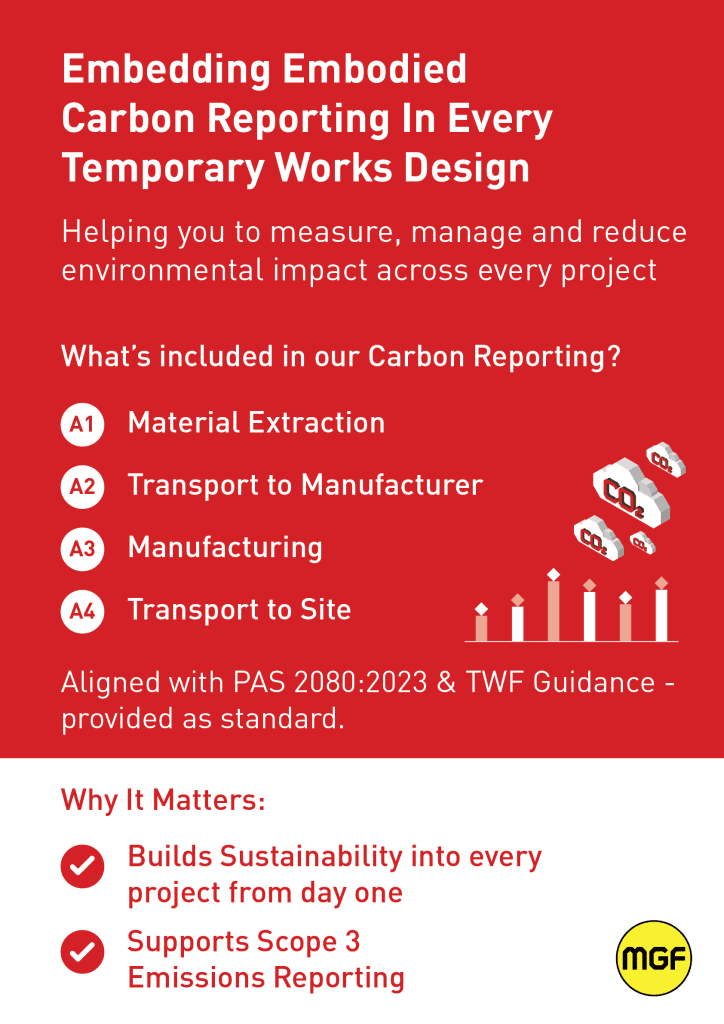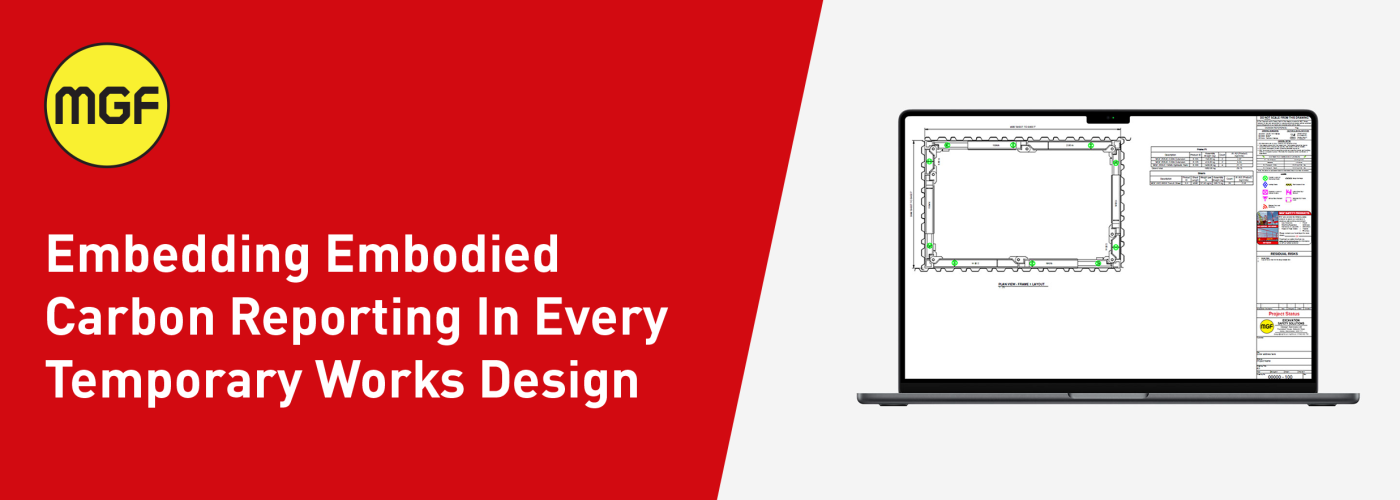MGF, a leading temporary works specialist, has announced the integration of embodied carbon data as a standard feature across all its temporary works designs, further supporting the industry’s drive toward more sustainable construction practices.
This development ensures that every MGF design now includes A1–A4 stage embodied carbon information – covering raw materials, manufacturing and transport – in line with the latest Temporary Works Forum (TWF) guidance 2024, RICS Whole Life Carbon Assessment System 2023 and PAS 2080:2023 standards.
Rather than offering carbon assessments as a separate or optional service, MGF has embedded carbon reporting directly into its design and hire systems – helping customers measure and reduce the impact of their projects from the outset. This means customers automatically receive transparent carbon data as part of every design package, helping project teams make informed decisions to reduce environmental impact from the earliest design stages.
“Measuring embodied carbon is no longer a future consideration – it’s a present-day requirement,” explains Steve Hesketh, Director at MGF. “We’ve invested in making carbon reporting an integral part of how we design, specify and deliver temporary works, ensuring that sustainability and compliance are built into the process as standard.”
MGF’s approach reflects its contribution to industry best practice. Hesketh led the team that developed the TWF’s most recent industry guidance on embodied carbon in temporary works – now recognised as a key reference document for the UK sector.
This initiative supports the wider construction industry focus on indirect Scope 3 emissions reporting and whole-life carbon accounting, areas of increasing importance to infrastructure, utilities and energy clients. It also demonstrates the environmental benefits of the hire model, which research from the European Rental Association shows can reduce carbon emissions by up to 50% compared to ownership – benefits further enhanced by design-led carbon reporting.
“Temporary works have a vital part to play in helping the industry meet carbon reduction targets,” adds Simon Littlewood, Managing Director at MGF. “By making embodied carbon data part of our standard offering, we’re giving customers practical, usable information that supports their own sustainability commitments while delivering safe, effective, and efficient groundworks solutions.”
MGF’s carbon data initiative forms part of its broader commitment to helping customers meet sustainability goals while ensuring safety, compliance and performance across all temporary works projects.
The company is now engaging customers and industry groups to highlight best practices and practical steps toward more transparent carbon accounting in temporary works.

Building, Design & Construction Magazine | The Choice of Industry Professionals





